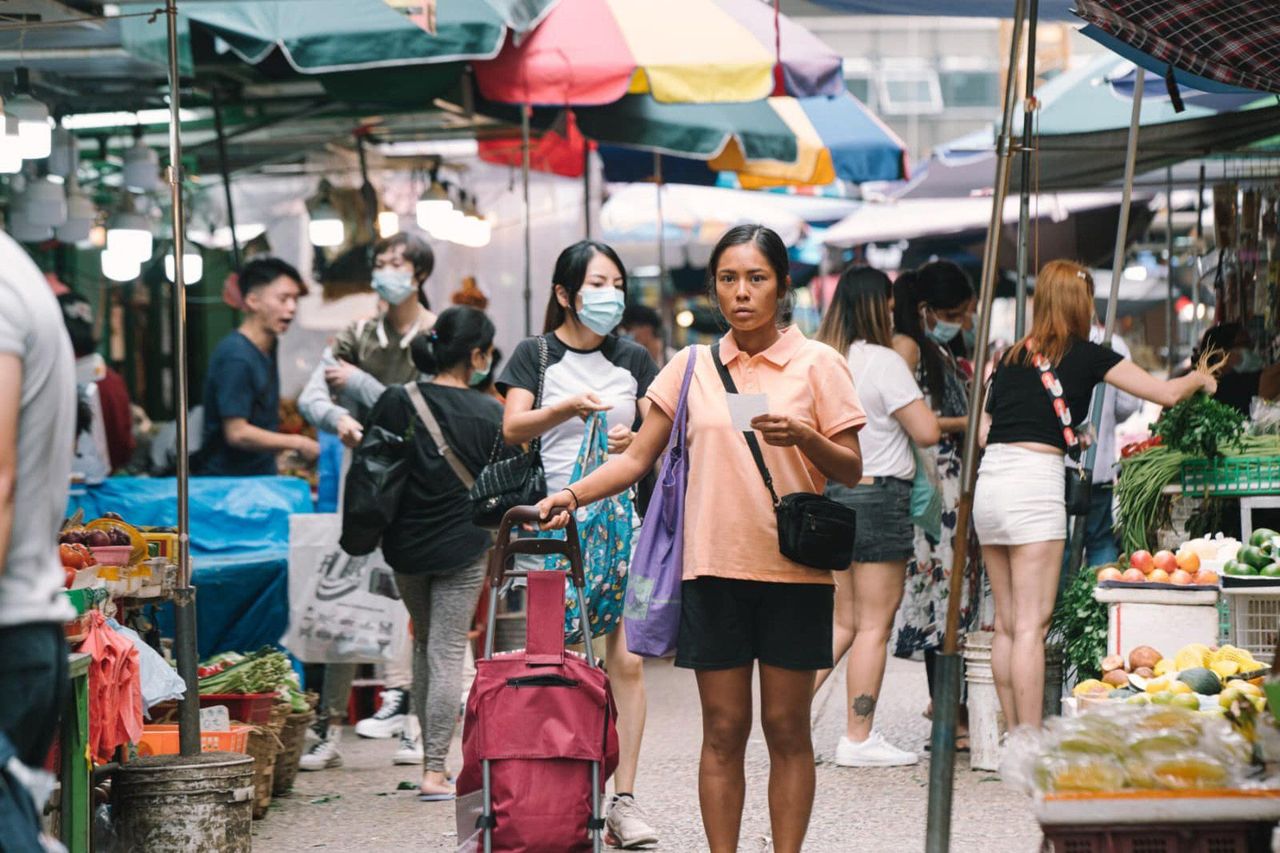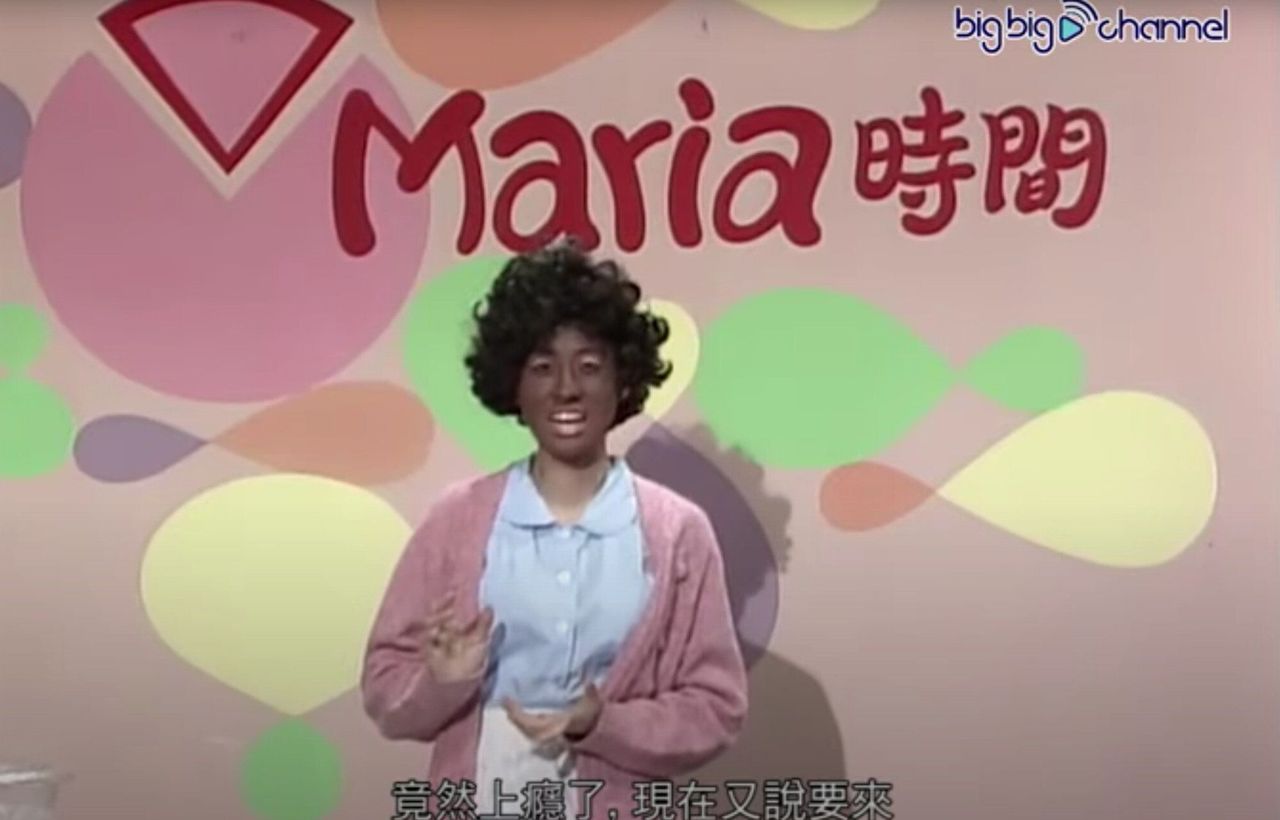Hong Kong News

Brownface on TV ‘not intentionally insensitive’, but ‘Hong Kong can do better’
At first, Hong Kong broadcaster TVB did not seem to grasp the fuss over a prime-time television drama series featuring actress Franchesca Wong, who darkened her skin to play a Filipino domestic worker.
As criticism mounted against the use of brownface in the episode of Barrack O’Karma 1968 that aired on Tuesday, the broadcaster praised the Canadian-born star, saying her “professional performing techniques” resulted in a successful portrayal of her character, Louisa.
The domestic helper Wong played in Jie Jie Part 1, the first of two parts, was a woman who displayed spooky behaviour, used voodoo and lied to her employers.
TVB insisted it never intended to disrespect or discriminate against any nationality, but the depiction triggered a storm of protest, especially among ethnic minority groups, over the use of brownface and the racial stereotyping.
Philippine Consul General Raly Tejada called the show “downright ignorant, insensitive and totally disgusting”.
 Actress Franchesca Wong darkened her skin to play a Filipino domestic worker in a TVB show.
Actress Franchesca Wong darkened her skin to play a Filipino domestic worker in a TVB show.
The backlash led TVB to pull the second part, which was to air on Wednesday, and remove both episodes from its website. It told the Post that both episodes would be available again “after further content amendment”.
The furore, and the fact that some viewers and local media supported the broadcaster, revealed that Hong Kong had some way to go in discussing issues of race and what minority groups considered sensitive or offensive, observers said.
Associate Professor Lisa Leung Yuk-ming, of the department of cultural studies at Lingnan University, said the incident showed that the city’s dominant broadcaster lacked sensitivity in portraying members of ethnic minority groups and foreign workers.
“It may not have been intentional, but they should take these potential reactions into account. They must be more attuned to the tastes of audiences and be close to social reality,” she said.
She added that there had been similar brownface controversies in other Asian countries in recent years when light-skinned individuals applied make-up to portray dark-complexioned people or members of another ethnic group.
Hong Kong has more than 350,000 domestic helpers, mostly from the Philippines and Indonesia, and they have been the most common target of brownface depictions over the decades.
In the 1980s, actress Elvina Kong wore dark make-up to play the role of Maria, a funny, clumsy domestic helper in TVB’s popular variety show Enjoy Yourself Tonight. There was no negative reaction then.
 Actress Elvina Kong wore dark make-up to play the role of a domestic helper in TVB’s Enjoy Yourself Tonight in the 1980s.
Actress Elvina Kong wore dark make-up to play the role of a domestic helper in TVB’s Enjoy Yourself Tonight in the 1980s.
But when actor Vincent Wong Ho-shun wore a curly wig and painted his face brown for an insurance company advertisement in 2014, it drew complaints. The advertiser took down the video and apologised.
In the latest incident, TVB was not without its supporters. Some brushed aside the criticisms of actress Wong’s use of brownface, with one Facebook user asking: “Why is it disrespectful? How can she portray a foreign domestic helper if she does not use make-up to darken her skin? Or must we find a real domestic helper to play the role?”
Leung said such reactions only showed that it would take time to raise Hongkongers’ awareness on the issue.
Even Equal Opportunities Commission chairman Ricky Chu Man-ki said on Friday that he did not think all use of blackface or brownface was necessarily wrong, and that one had to consider whether a portrayal was insulting or mocked a particular group.
But he felt TVB should have been more sensitive as some remarks by characters in the episode were disturbing, such as a male character who declared that domestic helpers often had affairs with their male employers.
Filmmaker Christine Vicera, a Filipino researcher at Chinese University, said there was a broader lesson to be learned.
 Actress Franchesca Wong applying dark make-up in an Instagram video.
Actress Franchesca Wong applying dark make-up in an Instagram video.
She said Hong Kong media tended to focus on the economic contributions of foreign workers or ran sensational reports on those physically abused by employers, but rarely examined how labour and immigration laws left these groups disadvantaged.
“There is a long way to go, but a good place to begin is by encouraging dialogue,” she continued. Scriptwriters, for example, could reach out to minority groups to understand their views about how they were represented in TV shows.
Leung added that beyond TV, Hong Kong film producers and audiences had moved on in recent years, with works that handled race better.
The 2018 feature film Still Human, about a Filipino helper and her paralysed employer, starred Philippine-born Crisel Consunji as the helper. It won her the best new performer award at the 2019 Hong Kong Film Awards and a best actress nomination.
But actor and educator Izzy Jose, 27, said there was still a long way to go before Filipino actors in Hong Kong received more challenging roles that were not as foreign workers and did not exploit stereotypes.
“As an artist, you want to grow and explore different kinds of roles, but this is all that we have in Hong Kong,” said Jose, who grew up in the city and trained in musical theatre at the Hong Kong Academy for Performing Arts.
She added that she would not have accepted the part of “Louisa” in the TVB series if she had been offered it, because of the way the role was written.
“I would love to play the role of a Filipino domestic worker who shows what these women have really gone through, what their struggles are in the city,” she said.
“We have to break the cycle, we have to break the stereotype. I wish Hong Kong people can do better.”











